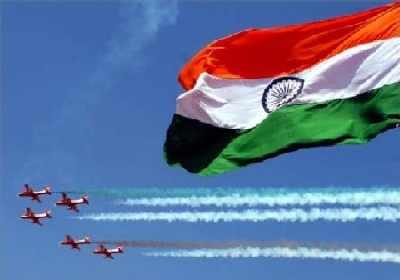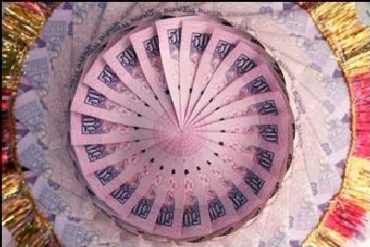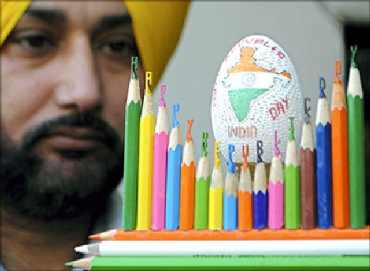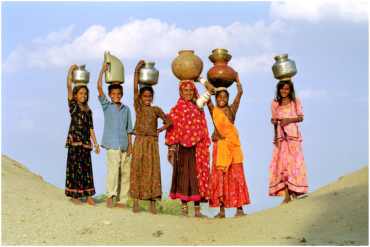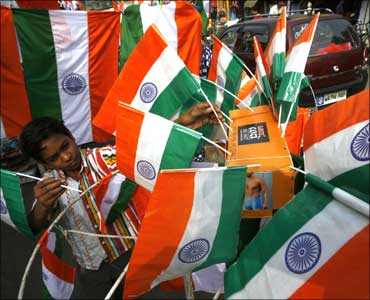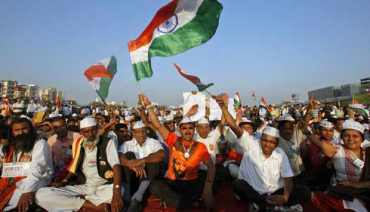 | « Back to article | Print this article |
What is holding back India's growth story?
Over the last two decades, which are coterminous with the era of economic reforms, India's GDP growth has accelerated, making it the second-fastest growing economy in the world.
But it has had a highly regressive impact since inter-state disparities, for instance, have tended to widen even more than before.
Although the rising tide of growth has lifted all boats, the faster-growing, richer states have steadily pulled apart from the slower-growing, poorer states. Although this growing divergence has been observed during earlier periods as well, factors responsible for it are not fully understood.
For Rediff Realtime News, click here
Click NEXT to read more...
What is holding back India's growth story?
Why should some states grow faster than others? Why should these disparities continue to worsen over time?
Earlier research by Planning Commission economists like Montek Ahluwalia and N J Kurian using data up to the late 1990s suggested that the top performing states weren't necessarily concentrated in one part of India as the popular stereotypes then suggested of a go-go south versus an overpopulated and impoverished north.
Or for that matter, that the slowly growing states were invariably the Bimaru states of Bihar, Madhya Pradesh, Rajasthan and Uttar Pradesh.
If anything, the pattern then was biased in favour of western India, thanks to Gujarat and Maharashtra.
Click NEXT to read more...
What is holding back India's growth story?
In its survey of mid-90s India, The Economist argued that one had to draw a line from Kanpur in the state of Uttar Pradesh to the tip of the sub-continent: "On the western side are bits of India that work; on the east, the bits that don't."
This west-east divide stemmed in part from the lighter industries that the government left in private hands.
Gujarat and Maharashtra showed the fastest acceleration in growth in the 1990s but so did West Bengal, Kerala, Tamil Nadu and Madhya Pradesh to a lesser extent.
Utsav Kumar and Arvind Subramanian take this story forward in a recent paper titled "Growth in India's States in the First Decade of the 21st Century: Four Fact" published in the Economic and Political Weekly.
Click NEXT to read more...
What is holding back India's growth story?
The facts are that growth in most states substantially increased in the noughties when compared to the nineties. This process indicates a further divergence in growth performance.
States with the highest growth in the pre-global crisis period suffered the largest deceleration when it struck in 2008-09. Lastly, the growth in working age-group in population doesn't explain the 2000s' trends.
According to the latest numbers, overall per capita income growth in the main states increased from 2.8 per cent in the nineties to 5.8 per cent in the noughties.
Click NEXT to read more...
What is holding back India's growth story?
However, rapid growth was observed in more than one part of the country in line with earlier research. The acceleration was the fastest in Uttarakhand, Maharashtra, Chhattisgarh with Gujarat, Orissa and Bihar not too far behind.
Although the southern states did well, Kerala's performance was stellar followed by Tamil Nadu. Among the Bimaru states, only Rajasthan suffered a deceleration in growth.
Kumar and Subramanian then show that booming growth was accompanied by a growing divergence among states.
The proximate reason for this is that richer states like Haryana, Maharashtra and Gujarat grew much faster than the surging performance of the hitherto laggard states like Bihar, and Orissa. Bihar's per capita income growth has trended up but it continues to remain at the bottom of the list of main states.
Click NEXT to read more...
What is holding back India's growth story?
What is also striking is the fact that some of the faster-growing states were affected by the global economic crisis of 2008-09.
Although the overall growth rate of the main states was only marginally affected by the crisis – 5.9 per cent in 2001-07 down to 5.5 per cent in 2007-09 – the faster growing and more globalised states like Gujarat, Maharashtra, Andhra Pradesh, Karnataka and Tamil Nadu experienced a sharp decline in growth.
Karnataka being the global IT hub, in fact, experienced the sharpest growth decline of all during the global crisis. Andhra's growth, too, with its IT industry was badly affected.
Click NEXT to read more...
What is holding back India's growth story?
As noted earlier, factors behind India's inter-state growth story have not been fully understood. Gujarat and Maharashtra's continued dominance at the top may appear less of a mystery since they continue to attract the bulk of investment proposals from the private sector.
But what about Kerala's outlier success as one of fastest growing states in the country? The state has for long been the poster boy of advanced social development despite a low per capita income. But the flip side of this model was industrial decay and stagnation.
But times clearly are changing as Kerala's growth accelerated in the 2000s when compared to the 1990s.
Click NEXT to read more...
What is holding back India's growth story?
Tourism is currently in the limelight in God's Own Country and the dynamism stems possibly from a remittances-driven growth process. But nobody knows for sure!
But the country is capacious enough to allow both an investment-friendly Gujarat and a reform-resistant Kerala to flourish -- an important reason why "the Indian growth miracle, including the experience of the 2000s, continues to confound," conclude Kumar and Subramanian.
From the Ivory Tower will make research from the academic world accessible to all our readers.
